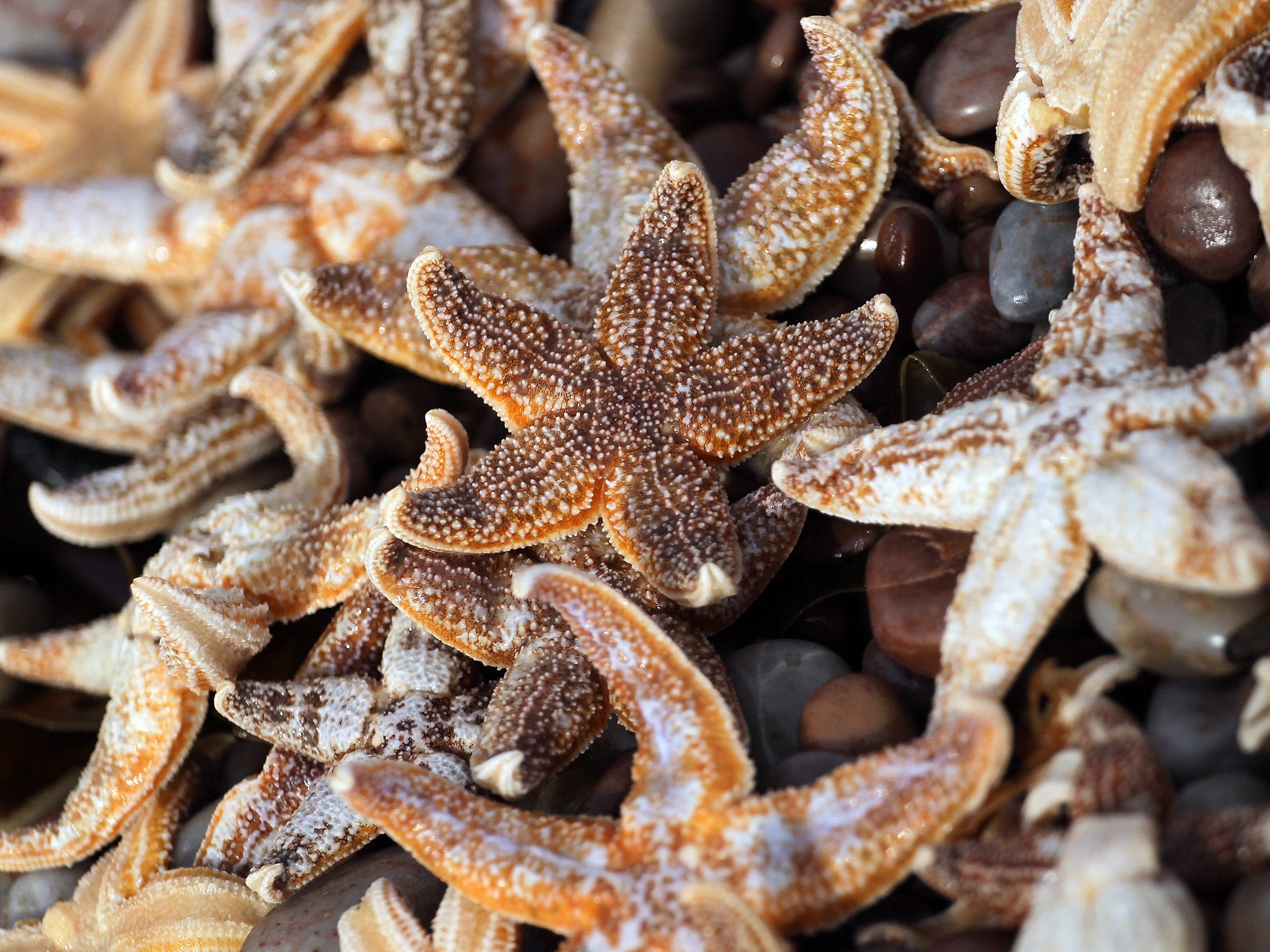Scientists uncover virus responsible for killing millions of starfish
Video: The disease causes the animal to 'basically fall apart into a pile of goo'

Scientists have finally identified a virus that has wiped out millions of starfish in North America since the disease first emerged last year.
Researchers have spent months investigating a wasting disease among starfish prevalent along the Pacific shores of North America.
On Monday, scientists revealed the pathogen as the Sea Star Associated Densovirus, or SSaDV. SSaDV causes white lesions on the starfish's body, before causing the body to sag, rupture and spill out the internal organs.
Professor Ian Hewson, a microbial ecologist at Cornell University, described the disease's effect as "The animals start to become lethargic and then basically fall apart into a pile of goo on the bottom of the sea floor".
SSaDV is currently affects over 20 species of starfish. Researchers also found that older starfish samples in museums have also shown signs of SSaDV from as early as 1942. Thus, while the disease has been present at low levels for years, it is only recently that SSaDV became such a huge threat to the species.
"It's probably the largest epidemic in marine wildlife that we know of," Cornell ecologist Drew Harvell said.
"That's the million-dollar question in all this: Why now? What is it that changed that created the conditions for this outbreak? And we don't have the answer to that. But certainly a viral mutation would be one explanation," Harvell added.
Subscribe to Independent Premium to bookmark this article
Want to bookmark your favourite articles and stories to read or reference later? Start your Independent Premium subscription today.

Join our commenting forum
Join thought-provoking conversations, follow other Independent readers and see their replies